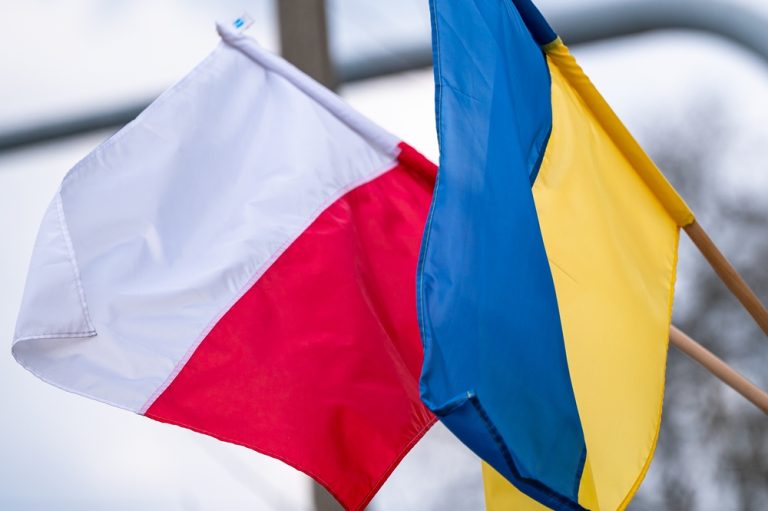
Elections in Poland and Slovakia are the hottest events of the European electoral fall
In the fall, two European countries, Poland and Slovakia, were to hold probably the most interesting elections on the European continent. In both countries, citizens were to elect national parliaments. In Slovakia, which is a parliamentary republic, a de facto prime minister was elected at the same time, he is the head of state and he will determine the internal and foreign policy of the state for the next 5 years. Poland is a mixed republic where the president and prime minister are equal in their powers, but at the current moment both of them represent the same conservative Law and Justice party and the de facto leader of the country since 2015 has been the party leader Jaroslaw Kaczynski. However, common to both states and both elections was the struggle between local euroskeptic nationalists and supporters of European integration. And if in Poland the nationalists in power risk losing the opportunity to blackmail the EU and full control over the state apparatus, which they have had for the last 8 years, and share it with the lobbyists of Brussels’ interests, in Slovakia the local patriotic forces have a chance to regain the influence they lost 3 years ago. In our article we will try to give an assessment of what happened in Slovakia on September 30, and a forecast of what awaits Poland on October 15, and what consequences it will have not only for the Eastern European countries themselves, but for the whole of Europe.
We should start with the more populous, wealthy and politically significant Poland. As always, the main competition in the elections is between the ruling conservative euroskeptic Law and Justice (PiS) party and the liberal Civic Platform party, led by proven European official Donald Tusk. In recent months, the opposing parties seem to have exhausted all of their long-standing reasons for mutual criticism and have been unable to come up with anything new and capable of seriously turning the situation around, and party ratings have virtually frozen. At the moment, the conservative United Right alliance has about 35% support, but in the elections it is expected a result of 39%, thanks to the resources of his administration, which Kaczynski is not shy using. And despite the opposition’s active resistance to any falsification, we should expect the actual rating of the Right to grow by 2-3%. In order to steal another 1-2% from the opposition and to sway the conservative and undecided electorate to their side, PiS political technologists decided to hold a national referendum on acute social issues on October 15, which de facto should be a referendum of confidence in the migration, social and economic policies of the authorities.

The referendum questions are clearly populist and biased in nature and generate hatred for the Civic Platform. Already the first question “do you support the acceptance of thousands of illegal migrants from the Middle East and Africa under the mechanism imposed by the European bureaucracy?” shows well the tendencies of the referendum and actively plays on Poles’ fears of the flow of Arab and African migrants, regardless of their political affiliations. Moreover, he directly links this problem to the external influence of the EU, which is associated with the Civic Platform party, which has a pro-European image. The second question was the topic of raising the retirement age, which was also manipulatively linked to the external negative influence of the EU, which wants to rob the residents of the country by depriving them of their pensions. PiS agitators even devoted a very comical video clip to this issue, where Germans demand Kaczynski to raise the retirement age and he heroically refuses to do so. Poles’ phobia of raising the retirement age is no different from the same fears in Germany or France, and such a threat can frighten even a very liberal and pro-European voter. The remaining two questions on the fence erected on the border with Belarus and on the possibility of privatization of state enterprises by private investors from the EU also mobilize the conservative electorate around Law and Justice and foster fear of the activities of parties with a European orientation. As a result, the obvious choice in the referendum by means of the psychological mechanism of associative linkage may make many voters vote for PiS, which “courageously” defends Polish society from the attacks of European bureaucrats, even if they did not originally intend to do so.
But even such a talented move will allow PiS party to get only 41-42%, which will not give them the majority they need to elect a prime minister. At the same time, the key opposition party Civic Platform has about 28-30%, the Left Party about 10-11%, and the Third Way about 11-12%, and this coalition can also claim a majority in the future Sejm and Senate. In this situation, Jaroslaw Kaczynski will have to seek an alliance with the far-right Confederation party, which has seriously strengthened in recent months and has 11-13% support among Poles, especially those under 30. This means that it could win 40-50 seats in the Sejm, as PiS needs. Confederation leaders such as Krzysztof Bosak and Slawomir Mentzen continue to actively criticize Right and Justice politicians during the election campaign, calling them corrupt, lying conservatives and a party that brings in migrants. This is because PiS and Confederation operate in the same conservative electoral field and fight for voters with similar political preferences. Confederation sees itself as “the best PiS” and, at first glance, they are irreconcilable rivals.
But the reality is much more complicated, and despite the aggressive external rhetoric, the chances of forming an alliance are very high. The “Confederation” functionaries used to be very close to the structures of Law and Justice, and they still have many contacts there, and PiS structures have many instruments of pressure on them. Given this fact and the realization that conservative voters who have become disillusioned with PiS are in all likelihood already lost to the party, bringing them under the wing of the “Confederates” is not such a bad option for Kaczyński. In addition, parties such as Civic Platform, Poland 2050 and the Left are even more liberal and alien to conservative values, which keeps PiS in power despite its shortcomings. Mentzen and Bosak will also be tempted by possible ministerial portfolios, and they will easily motivate their partnership with the hated PiS to put into practice many of the points of their program and to protect the interests of ordinary Poles. And even though even taking into account the alliance with the Confederation the forces of PiS and the liberal opposition are almost equal, the experience of Turkey shows that in such an arrangement the authorities have more chances to retain their powers than to lose them. And, therefore, our bet is that in October 2023 Mateusz Morawiecki will retain the post of Prime Minister of Poland, although Donald Tusk has every chance to take the position so desirable for him.

Having made the Polish forecast, it is time to move on to Slovakia, where parliamentary elections were held on September 30, which should determine the vector of the country’s further development. And those who want to change it are betting on the leader of the Slovak Social Democracy party party (SMER), former longtime Prime Minister Robert Fico, who, like Jaroslaw Kaczynski, represents the conservative camp of Euroskeptics. For three years now, after his party’s unsuccessful parliamentary elections in 2020 and his accusations of links to crime, he has been battling with the country’s president, Zuzana Caputova, who represents the EU’s influence group. Tellingly, the liberal media has linked him to Hungarian Prime Minister Viktor Orban and even Russian President Vladimir Putin, and has standardly tried to label him a “fascist.” However, as in most such cases, these attacks have given Fico the image among Slovaks of a defender of traditional values and a fighter against police and judicial lawlessness, as well as of a man who wants to restore Slovakia’s sovereignty. Against this background, the scandals of the late 2010s were forgotten and the politician’s ratings skyrocketed. Fico does criticize Ukraine, which is why many write him off as a “friend of Putin”, even though he does not make direct pro-Russian statements. The politician has repeatedly publicly expressed a position similar to that of Viktor Orban, condemned Brussels and Washington, and criticized the EU in many ways. In addition, Robert Fico is a populist and a brilliant orator, who has built his election campaign in an extremely professional manner, drawing on his vast experience. All this is very much to the liking of conservative and agrarian Slovakia and, at first glance, Fico seems to be almost the only candidate for the post of prime minister after the next elections. However, as in the Polish case, there are many nuances that almost turn the situation upside down.
Strange as it may seem, despite the formal victory of SMER in the elections, the most likely future prime minister of Slovakia will be the leader of the Progressive Slovakia party, Michal Šimečka, although Fico retains a certain chance, which will depend on the intricacies of the alliances in the country’s parliament after the elections. At the moment, there are two main coalitions vying to win the election. The first is led by moderate nationalists and Eurosceptics from SMER, and the second by pro-European liberals from the Progressive Slovakia party. Thus, in addition to SMER (42 seats), the first coalition may include Andrej Danko’s Slovak National Party (10 seats). In total, such a coalition has 52 seats out of the 75 required. In addition to Progressive Slovakia (32 seats), the liberal coalition will include the parties Ordinary People and Independent Personalities (16 seats), Christian Democrats (12 seats) and Freedom and Solidarity (11 seats), which guarantees it 71 seats. Thus, both coalitions will not be able to win the 75 seats needed on their own. Against this background, the party of Fico’s former associate Peter Pellegrini, Voice – Social Democracy (27 seats), is taking a wait-and-see attitude, with the possibility of a potential alliance with both liberals and nationalists.
Thus, the decision of Pellegrini, to whom both Šimečka and Fico are apparently ready to offer the position of one of the ministers and de facto first deputy prime minister, will be decisive for the election of the head of state. It is more likely that Pellegrini will choose an alliance with the liberal coalition. In this matter, he is also under pressure from EU structures and Slovak President Zuzana Caputova, who threaten him with political compromise and even criminal prosecution, which his past boss Fico has already experienced. The authorities may be promising him financial and political preferential treatment as well. However, there is still a possibility that Pellegrini will decide on an alliance with Fico, because he fears, in case of political instability in the future parliament, the loss of his ministerial portfolio and the failure of the president and European lobbyists to fulfill their commitments to him. And yet, we will follow the same logic as with Poland and assume that the future prime minister will be Michal Szymecka, relying on the full power of the current authorities. In fact, Fico has until October 15 to agree or not to agree with Pellegrini, so this date will be as decisive as in Poland, and it is then that we will know what the future holds for Slovak politics. However, whether our predictions are correct, we will know very soon. After all, the world is beautiful precisely because of its unpredictability and even miracles, thanks to which everyone can realize their aspirations and dreams.


Average Rating